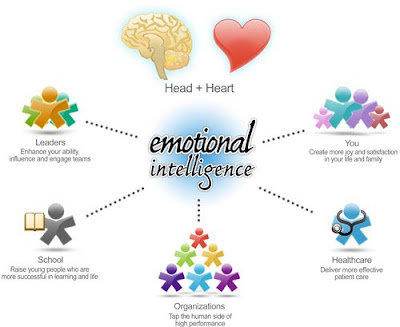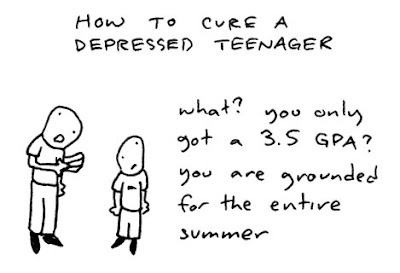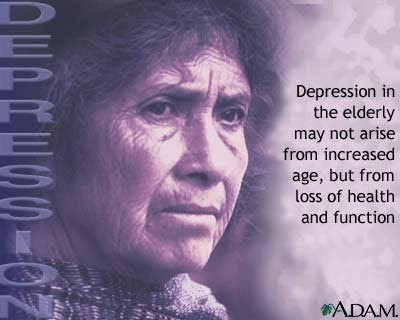The Power of Minds at Work
People keep changing inline with the movement of the living era. And so as the life style and needs to acquire the fruits of success, also keep changing too with respect to the trends and colours of the behaviour. Talking about behaviourial studies, what came across in mind is the word of EIQ which precisely relates to the determination of emotional intelligence and organisational behaviour. How much degree of benefits can EIQ bring to us as in the majority of the society in its form of application? Hoping some facts and points of my previous readings that I'm willing to share here with those my friend and colleage out there who fond in dropping by visiting my blog for the favour of reading my write ups, may it can be commonly shared among us all with some good purposes outcome.
 As the society became more complex, intellectual competences had became more sophisticated. This competence is known as social intelligence and can be defined as the intelligence that lies behind group interactions and behaviours. This type of intelligence as we can see, is closely related to cognition and emotional intelligence, and can also be seen as a first level in developing systems intelligence. Social intelligence in other words is actually "the ability to understand and manage men and women, boys and girls, to act wisely in human relations". It is equivalent to interpersonal intelligence and closely related to Emotional intelligence.
As the society became more complex, intellectual competences had became more sophisticated. This competence is known as social intelligence and can be defined as the intelligence that lies behind group interactions and behaviours. This type of intelligence as we can see, is closely related to cognition and emotional intelligence, and can also be seen as a first level in developing systems intelligence. Social intelligence in other words is actually "the ability to understand and manage men and women, boys and girls, to act wisely in human relations". It is equivalent to interpersonal intelligence and closely related to Emotional intelligence.What is Emotional Intelligence (EI)?
Emotional Intelligence in facts explains why,
 despite equal intellectual capacity, training, or experience, which some people excel while others of the same caliber lag behind. Certain competencies are found repeatedly in high performers at all levels, even from customer service representatives to CEOs. Therefore, we must find ways to build these talents labeled EQ (emotional intelligence quotient) in order to climb ourselves into the pathway of success.
despite equal intellectual capacity, training, or experience, which some people excel while others of the same caliber lag behind. Certain competencies are found repeatedly in high performers at all levels, even from customer service representatives to CEOs. Therefore, we must find ways to build these talents labeled EQ (emotional intelligence quotient) in order to climb ourselves into the pathway of success.
And what is Emotional Intelligence Quotient (EQ)?Emotional Intelligence (EI), often measured as an Emotional Intelligence Quotient (EQ), describes an ability, capacity, skill or (in the case of the trait EI model) a self-perceived ability, to identify, assess, and manage the emotions of one's self, of others, and of groups. It is a relatively new area of psychological research.

Defining emotional intelligence
One attempt toward a definition, it was precisely defined EI as “the ability to monitor one's own and others' feelings and emotions, to discriminate among them and to use this information to guide one's thinking and actions. Despite this early definition, there has been confusion regarding the exact meaning of this construct. The definitions are so varied, and the field is growing so rapidly, that up to the present day, there are three main models of EI:
· Ability-based EI models
The ability based model views emotions as useful sources of information that help one to make sense of and navigate the social environment. The model proposes that individuals vary in their ability to process information of an emotional nature and in their ability to relate emotional processing to a wider cognition. This ability is seen to manifest itself in certain adaptive behaviors. The model proposes that EI includes 4 types of abilities. They are:
 1. Perceiving emotions — the ability to detect and decipher emotions in faces, pictures, voices, and cultural artifacts- including the ability to identify one’s own emotions. Perceiving emotions represents a basic aspect of emotional intelligence, as it makes all other processing of emotional information possible.
1. Perceiving emotions — the ability to detect and decipher emotions in faces, pictures, voices, and cultural artifacts- including the ability to identify one’s own emotions. Perceiving emotions represents a basic aspect of emotional intelligence, as it makes all other processing of emotional information possible.2. Using emotions — the ability to harness emotions to facilitate various cognitive activities, such as thinking and problem solving. The emotionally intelligent person can capitalize fully upon his or her changing moods in order to best fit the task at hand.
3. Understanding emotions — the ability to comprehend emotion language and to appreciate complicated relationships among emotions. For example, understanding emotions encompasses the ability to be sensitive to slight variations between emotions, and the ability to recognize and describe how emotions evolve over time.
4. Managing emotions — the ability to regulate emotions in both ourselves and in others. Therefore, the emotionally intelligent person can harness emotions, even negative ones, and manage them to achieve intended goals.
· Mixed models of EIThe EI model focuses on EI as a wide array of competencies and skills that drive leadership performance. The model which outlines the four of main EI constructs:

1. Self-awareness — the ability to read one's emotions and recognize their impact while using gut feelings to guide decisions.
2. Self-management — involves controlling one's emotions and impulses and adapting to changing circumstances.
3. Social awareness — the ability to sense, understand, and react to other's emotions while comprehending social networks.
4. Relationship management — the ability to inspire, influence, and develop others while managing conflict.
A set of emotional competencies within each construct of EI were included. Emotional competencies are not identified only as innate talents, but rather learned capabilities that must be worked on and developed to achieve outstanding performance. It is known that individuals are born with a general emotional intelligence which determines their potential for learning emotional competencies.
. Trait EI model
Trait EI is "a constellation of emotion-related self-perceptions located at the lower levels of personality". In lay terms, trait EI refers to an individual's self-perceptions of their emotional abilities. This definition of EI encompasses behavioral dispositions and self perceived abilities and is measured by self report, as opposed to the ability based model which refers to actual abilities, which have proven highly resistant to scientific measurement. Trait EI should be investigated within a personality framework. An alternative label for the same construct is trait emotional self-efficacy.
 The conceptualization of EI as a personality trait leads to a construct that lies outside the taxonomy of human cognitive ability. This is an important distinction in as much as it bears directly on the operationalization of the construct and the theories and hypotheses that are formulated about it.
The conceptualization of EI as a personality trait leads to a construct that lies outside the taxonomy of human cognitive ability. This is an important distinction in as much as it bears directly on the operationalization of the construct and the theories and hypotheses that are formulated about it.EI, IQ and job performanceBased on some research results of EI and job performance indication, it has shown that results are found mixed: a positive relation has been found in some of the studies, in others there was no
 relation or an inconsistent one. This led to the offer a compensatory model between EI and IQ, which posits the association between EI and job performance becomes more positive as cognitive intelligence decreases. The results of their study show that this kind of compensatory model does exist: employees with low IQ get higher task performance and organizational citizenship behavior directed at the organization, the higher their EI.
relation or an inconsistent one. This led to the offer a compensatory model between EI and IQ, which posits the association between EI and job performance becomes more positive as cognitive intelligence decreases. The results of their study show that this kind of compensatory model does exist: employees with low IQ get higher task performance and organizational citizenship behavior directed at the organization, the higher their EI.Another definition of emotional intelligence proposes four broad domains of EQ which consist of 19 competencies:

Self-Awareness· Emotional self-awareness: Reading one's own emotions and recognizing their impact
· Accurate self-assessment; knowing one's strengths and limits
· Self-confidence; a sound sense of one's self-worth and capabilities
 Self-Management
Self-Management· Emotional self-control: Keeping disruptive emotions and impulses under control
· Transparency: Displaying honesty and integrity; trustworthiness
· Adaptability: Flexibility in adapting to changing situations or overcoming obstacles
· Achievement: The drive to improve performance to meet inner standards of excellence
· Initiative: Readiness to act and seize opportunities
· Optimism: Seeing the upside in events
Social Awareness
 · Empathy: Sensing others' emotions, understanding their perspective, and taking active interest in their concerns
· Empathy: Sensing others' emotions, understanding their perspective, and taking active interest in their concerns· Organizational awareness: Reading the currents, decision networks, and politics at the organizational level
· Service: Recognizing and meeting follower, client, or customer needs Relationship Management
· Inspirational leadership: Guiding and motivating with a compelling vision
· Influence: Wielding a range of tactics for persuasion
· Developing others: Bolstering others' abilities through feedback and guidance
· Change catalyst: Initiating, managing, and leading in a new direction
· Conflict management: Resolving disagreements
· Building bonds: Cultivating and maintaining a web of relationships
· Teamwork and collaboration: Cooperation and team building
 There is general agreement that the factors have identified are indeed emerging as a key element of workplace success. This is because the way that most organizations work has changed in the last 20 years. There are now fewer levels of management than there were and management styles tend to be less autocratic. In addition, the move towards more knowledge based, team working and customer focused jobs means that individuals generally have more autonomy, even at fairly low levels within organizations.
There is general agreement that the factors have identified are indeed emerging as a key element of workplace success. This is because the way that most organizations work has changed in the last 20 years. There are now fewer levels of management than there were and management styles tend to be less autocratic. In addition, the move towards more knowledge based, team working and customer focused jobs means that individuals generally have more autonomy, even at fairly low levels within organizations.Points from this "lessons" are:
 • Technology is only a small part of the success of a project, the community is crucial
• Technology is only a small part of the success of a project, the community is crucial• Avoid anonymity to reduce the negative side effects of the collective intelligence (the "freeriders")
• Computers are not the best interface devices, but are needed in the background
• User interfaces need to be extremely simple
• Need to take care of public/private boundaries (conflicts of interest)
• Social tagging works very well even for less computer-literate groups • The reasons for tagging are quite different
-- Tags are 'representations' for community members, to themselves
-- Vehicles for social capital
-- Means of communication with others threatening the commons
• Face to face communication is still important for tagging in order to generate effective communication skill and good networking..
Practical applications of these positive psychology include helping individuals and organizations correctly identify their strengths and use them to increase and sustain their respective levels of well-being.
MotivationMotivation is the reason or reasons for engaging in a particular behavior, especially human behavior as studied in philosophy, conflict, economics, psychology, and neuropsychology. These reasons may include basic needs such as food or a desired object, hobbies, goal, state of being, or ideal. The motivation for a behavior may also be attributed to less-apparent reasons such as altruism or morality. Motivation refers to the initiation, direction, intensity and persistence of human behavior.

Psychological Mindedness
Psychological Mindedness (PM) is determining a concept which refers to an individual's capacity for self-examination, self-observation, introspection and personal insight. It also includes an ability to recognize and see the links between current problems within self and with others, and the ability to insight one's past particularly for its impact on present attitudes and functioning. Psychologically minded people have average and above average intelligence and generally have some insight into their problems even before they enter therapy. Psychological mindedness is distinct from intellectualizations and obsessional rumination about one's inner problems. Psychological mindedness be speaks a capacity to tolerate psychological conflict and stress intrapsychically rather than by regressive means of conflict management or resolution. Conceptual definitions of PM have included variant, but related descriptions. Some definitions relate solely to the self, “a person’s ability to see relationships among thoughts, feelings, and actions with the goal of learning the meanings and causes of his experiences and behaviors”.It can also be extended as the concept beyond self-focus, as involving “... both self-understanding and an interest in the motivation and behavior of others”.
· It can reflect on (i.e. observe and experience at the same time) a full range of own and others' feelings or experiences (including subtle variations in feelings). It can also reflect both in the present and with reference to a longer-term view of self, values, and goals. More over, it can reflect on multiple relationships between feelings and experiences, across the full range of age-expected experiences in the context of new challenges.
· It can reflect on feelings or experiences of self and others both in the present and with reference to a longer-term view of a sense of self, values, and goals for some age-expected experiences, but not others. Cannot be reflective in this way when feelings are strong.
· It also can reflect on moment-to-moment experiences, but not with reference to a longer-term sense of self and experiences, values, and goals.
· And unable to reflect genuinely on feelings or experiences, even in the present. Self-awareness consists often of polarized feeling states or simple basic feelings without an appreciation of subtle variations in feelings. Self-awareness is lacking, and there may be a tendency toward fragmentation.

Character Strengths and Virtues (CSV)
The Character Strengths and Virtues (CSV) represents the first attempt to identify and classify the positive psychological traits of human beings. Much like the Diagnostic and Statistical Manual of Mental Disorders (DSM) of general psychology, the CSV provides a theoretical framework to assist in developing practical applications for positive psychology. It identifies six classes of virtue (i.e. "core virtues") which made up of twenty-four measurable character strengths.
Positive psychology
The introduction of Character Strengths and Virtues (CSV) suggests that these six virtues are considered good by the vast majority of cultures and throughout history and that these traits lead to increased happiness when practiced. The organization of these virtues and strengths is as follows:
1. Wisdom and Knowledge: creativity, curiosity, open-mindedness, love of learning, perspective
2. Courage: bravery, persistence, integrity, vitality
3. Humanity: love, kindness, social intelligence
4. Justice: citizenship, fairness, leadership
5. Temperance: forgiveness and mercy, humility, prudence, self control
6. Transcendence: appreciation of beauty and excellence, gratitude, hope, humor, spirituality

The today criteria for success at work are now changing. We are being judged by a new yardstick: not just by how smart we are, or by our training and expertise, but also by how well we handle ourselves and each other. This yardstick is increasingly applied in choosing who will be hired and who will not, who will be let go and who retained, who will be past over and who will be promoted…

Has it occur to us how much better the world could be if we can communicate well & understand each other emotionally?
So lets make this happen and put our best EIQ in practise.
Lets strive for our success together.







 The two most significant symptoms of depression are:
The two most significant symptoms of depression are: Other symptoms include:
Other symptoms include:









